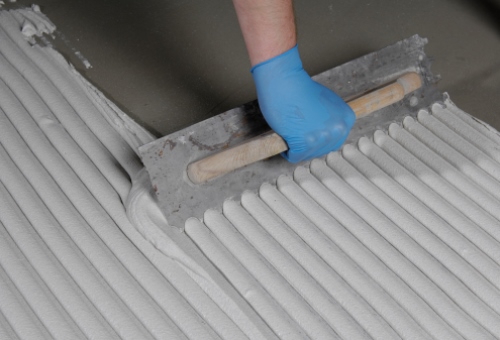When embarking on a tiling project, choosing the right tile adhesive is crucial for ensuring a durable and long-lasting finish. Tile adhesives come in various types, each suited for specific applications and environments. In this guide, we’ll explore the different kinds of tile adhesives, their characteristics, and their best use cases, while answering some common questions about tile adhesives.
1. Cement-Based Adhesives
Cement-based adhesives are among the most commonly used tile adhesives. They are versatile, strong, and suitable for both indoor and outdoor applications.
Characteristics:
- Composed of cement, sand, and special additives.
- Available in powdered form, requiring mixing with water or a liquid additive.
- Suitable for various tile types, including ceramic, porcelain, and natural stone.
Best Uses:
- Ideal for floor tiles in bathrooms, kitchens, and other areas with high moisture.
- Suitable for exterior applications such as patios and balconies.
2. Ready-Mixed Adhesives
Ready-mixed adhesives are pre-mixed and come in tubs, making them convenient and easy to use. They are typically used for smaller projects and specific tile types.
Characteristics:
- No mixing required, ready to apply straight from the tub.
- Usually has a longer drying time compared to cement-based adhesives.
- Best suited for ceramic tiles.
Best Uses:
- Ideal for wall tiles in dry areas such as living rooms and bedrooms.
- Suitable for DIY projects due to their ease of use.
3. Epoxy Adhesives
Epoxy adhesives are known for their exceptional strength and durability. They consist of two components: a resin and a hardener, which must be mixed before application.
Characteristics:
- Highly resistant to chemicals, stains, and moisture.
- Provides a strong bond and is flexible, reducing the risk of cracks.
- More expensive and can be more challenging to work with compared to other adhesives.
Best Uses:
- Perfect for areas exposed to harsh conditions, such as commercial kitchens, industrial settings, and swimming pools.
- Suitable for both indoor and outdoor applications.
Common Questions about Tile Adhesives
What kinds of tile adhesives are there?
Tile adhesives come in several types, including cement-based adhesives, ready-mixed adhesives, and epoxy adhesives. Each type has its specific characteristics and best use cases, as detailed above.
Which adhesive is used for floor tiles?
Cement-based adhesives and epoxy adhesives are commonly used for floor tiles due to their strength and durability. Epoxy adhesives are especially suitable for high-stress areas.
Can you use ceramic tile adhesive for porcelain tiles?
Generally, ceramic tile adhesive can be used for porcelain tiles, but it’s important to check the manufacturer’s recommendations. Porcelain tiles are denser and may require a stronger adhesive, such as a cement-based or epoxy adhesive.
What is the best waterproof tile adhesive?
Epoxy adhesives are considered the best waterproof tile adhesives due to their high resistance to moisture and chemicals. Cement-based adhesives with added latex can also offer good waterproofing properties.
Is it necessary to use tile adhesive for fixing a tile on the wall?
Yes, it is necessary to use tile adhesive for fixing tiles on the wall. Adhesives provide the necessary bond strength to ensure the tiles stay in place and are durable. Using the right adhesive is crucial for the longevity and stability of the tiling.
What is the difference between tile adhesive and thin-set?
Tile adhesive is a general term that can refer to various types of adhesives used for tiling, including ready-mixed and epoxy adhesives. Thin-set, on the other hand, specifically refers to a type of cement-based adhesive that is mixed with water or a liquid additive. Thin-set is known for its strong bonding capabilities and is commonly used for both floor and wall installations.
Conclusion
Choosing the right tile adhesive is essential for the success of your tiling project. Consider the specific requirements of your project, including the type of tiles, the substrate, and the environmental conditions. Whether you’re working on a small DIY project or a large commercial installation, there’s a tile adhesive that fits your needs. By understanding the different types of adhesives available, you can make an informed decision and achieve a professional and durable finish.
